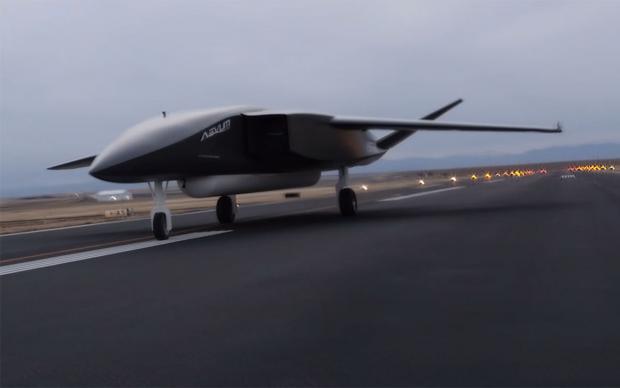
Breaking News
 Is the White House Actually the Overlook Hotel East?
Is the White House Actually the Overlook Hotel East?
 QatarEnergy Declares Force Majeure As One-Fifth Of Global LNG Supply Goes Dark
QatarEnergy Declares Force Majeure As One-Fifth Of Global LNG Supply Goes Dark
 Primary Losers: Crockett Cries 'Disenfranchisement', Crenshaw Crushed
Primary Losers: Crockett Cries 'Disenfranchisement', Crenshaw Crushed
 U.S. Submarine Sinks Iranian Warship In First Torpedo Kill Since WWII
U.S. Submarine Sinks Iranian Warship In First Torpedo Kill Since WWII
Top Tech News
 US particle accelerators turn nuclear waste into electricity, cut radioactive life by 99.7%
US particle accelerators turn nuclear waste into electricity, cut radioactive life by 99.7%
 Blast Them: A Rutgers Scientist Uses Lasers to Kill Weeds
Blast Them: A Rutgers Scientist Uses Lasers to Kill Weeds
 H100 GPUs that cost $40,000 new are now selling for around $6,000 on eBay, an 85% drop.
H100 GPUs that cost $40,000 new are now selling for around $6,000 on eBay, an 85% drop.
 We finally know exactly why spider silk is stronger than steel.
We finally know exactly why spider silk is stronger than steel.
 She ran out of options at 12. Then her own cells came back to save her.
She ran out of options at 12. Then her own cells came back to save her.
 A cardiovascular revolution is silently unfolding in cardiac intervention labs.
A cardiovascular revolution is silently unfolding in cardiac intervention labs.
 DARPA chooses two to develop insect-size robots for complex jobs like disaster relief...
DARPA chooses two to develop insect-size robots for complex jobs like disaster relief...
 Multimaterial 3D printer builds fully functional electric motor from scratch in hours
Multimaterial 3D printer builds fully functional electric motor from scratch in hours
 WindRunner: The largest cargo aircraft ever to be built, capable of carrying six Chinooks
WindRunner: The largest cargo aircraft ever to be built, capable of carrying six Chinooks
World's largest fully-autonomous DRONE unveiled by US space startup will launch satellites...

The world's first satellite launching drone, developed by a US-based space startup, will will be able to carry a new payload into orbit every 180 minutes, the firm claims.
Aevum says the massive 80ft long drone, named the Ravn X, is fully autonomous, 70 per cent reusable, and can take off and land on runways as short as a mile long.
Working in partnership with the US Space Force, the firm says it is 'completely reimagining access to space' by focusing on autonomy and better logistics.
The drone can take off from any runway to reach high altitude where it deploys a second stage that takes a small payload the rest of the way to space.
After it has launched the second stage rocket into low Earth orbit, the drone flies itself back to its home runway, lands and then parks up in its hanger.
The first launch of a satellite using the Ravn X is expected to be the US Space Force ASLON-45 small satellite launch mission in 2021.
The technology allows for satellites to be sent into orbit without a pilot, launchpad or massive rocket, which Aevum says removes the 'risk to human life'.
The drone is about as long as two school buses - about 80ft - and can carry satellites weighing up to 500kg fully autonomously with no costly infrastructure.
Developers say as well as military implications, the drone launch vehicle could help scientists quickly and cheaply put sensors into orbit for specific experiments.
'We are pushing logistics to the next generation with software and automation technologies,' said Jay Skylus, founder and CEO of Aevum.
Military and US officials have said there is a 'critical need' for extremely fast access to low Earth orbit, Skylus said, so they set out to create a system 'faster than anybody'.

 RNA Crop Spray: Should We Be Worried?
RNA Crop Spray: Should We Be Worried?

